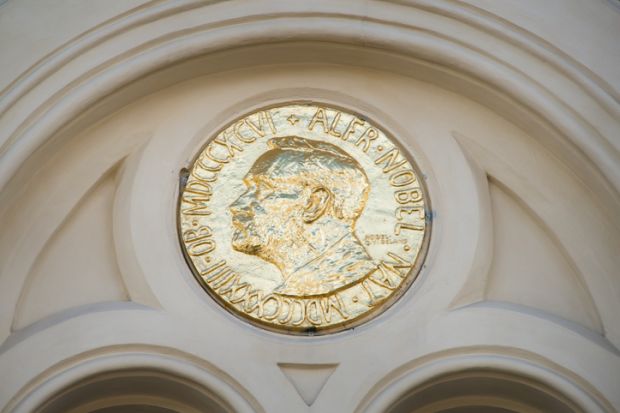With a recession looming, one MEP is hoping the lustre of Nobel prizes can tease mercy from European Union finance ministers intent on cutting down the bloc’s multibillion-euro research budget.
Leading the axe-wielding ministers is the Czech Republic’s Zbyněk Stanjura, who said in July that he and colleagues would “pursue a prudent approach” to the EU’s 2023 budget, trimming €663 million (£579 million) from the Horizon Europe research programme.
At the start of October, the European parliament's budget committee said those Horizon cuts should be almost half as severe – €311 million smaller than ministers proposed.
Their defence coincides with celebrations at the European Research Council (ERC), which has funded for “over a decade” the winner of the 2022 Nobel Prize in Physiology or Medicine, Svante Pääbo.
Watching the celebrations, one of the European parliament’s lead negotiators for the Horizon programme, Christian Ehler, said on Twitter that ministers should “keep in mind [that] this is the kind [of] science on which the member states want to cut radically”, referring to the €122 million that would be lost from the ERC’s 2023 spending under ministerial proposals.
“That means cutting at least 50 grants for potential Nobel prizewinners – just to get a symbolic cut in national contributions to the EU budget,” he said.
The budget trim, which comes as national and institutional budgets are also squeezed by a growing energy crisis, has been widely opposed by the university networks plugged into Brussels policymaking.
The ministers’ budget would also see €33 million cut from the Marie Skłodowska-Curie Actions (MSCA), the EU’s main programme for doctoral and postdoctoral education and training, which was recently expanded to support those from Ukraine.
In an open letter addressed to the Czech chairs of EU decision-making bodies – the country holds the rotating EU presidency until the end of 2022 – university groups, associations and a consultancy point out that the MSCA cuts were bigger than the amount set aside for Ukrainian trainees.
Their appeal included familiar warnings that the bloc could fall behind competitors in the US and China.
“The EU must not mortgage our future through present investment needs,” said Jan Palmowski, secretary general of the Guild of European Research-Intensive Universities, one of the signatories to the letter.
Kurt Deketelaere, secretary general of the League of European Research Universities, said it was “absurd” that ministers wanted to move unspent 2022 money from the Horizon budget elsewhere.
“The ring-fencing of major budget lines while others, like [Horizon], are not protected in a similar way, is opening the door to constant attacks,” he said.
The entire European parliament will debate its budget committee’s plan to soften the cuts in the coming weeks, with three weeks of negotiations with EU finance ministers set to follow into November.
Register to continue
Why register?
- Registration is free and only takes a moment
- Once registered, you can read 3 articles a month
- Sign up for our newsletter
Subscribe
Or subscribe for unlimited access to:
- Unlimited access to news, views, insights & reviews
- Digital editions
- Digital access to THE’s university and college rankings analysis
Already registered or a current subscriber?








